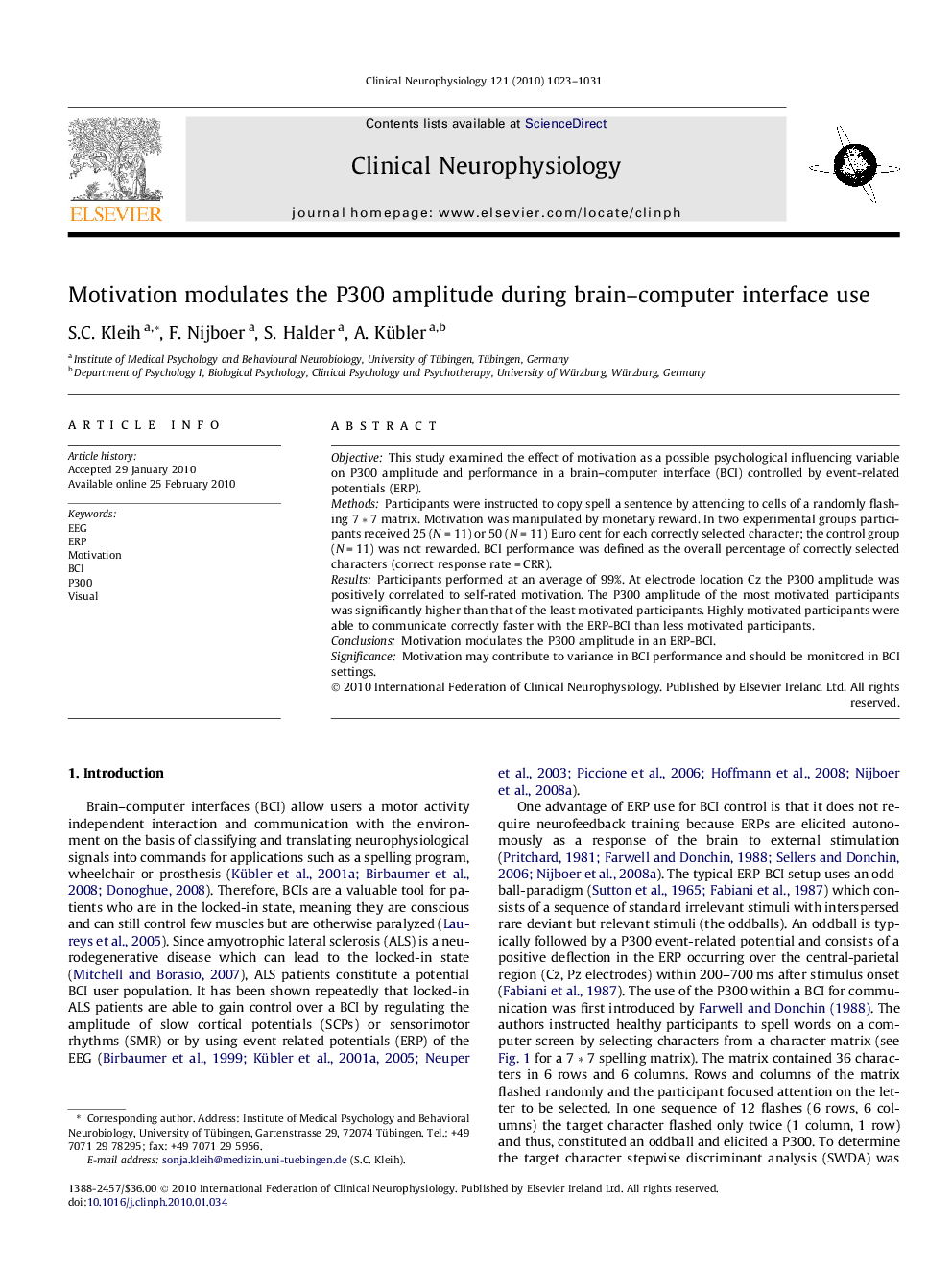| Article ID | Journal | Published Year | Pages | File Type |
|---|---|---|---|---|
| 3045925 | Clinical Neurophysiology | 2010 | 9 Pages |
ObjectiveThis study examined the effect of motivation as a possible psychological influencing variable on P300 amplitude and performance in a brain–computer interface (BCI) controlled by event-related potentials (ERP).MethodsParticipants were instructed to copy spell a sentence by attending to cells of a randomly flashing 7 * 7 matrix. Motivation was manipulated by monetary reward. In two experimental groups participants received 25 (N = 11) or 50 (N = 11) Euro cent for each correctly selected character; the control group (N = 11) was not rewarded. BCI performance was defined as the overall percentage of correctly selected characters (correct response rate = CRR).ResultsParticipants performed at an average of 99%. At electrode location Cz the P300 amplitude was positively correlated to self-rated motivation. The P300 amplitude of the most motivated participants was significantly higher than that of the least motivated participants. Highly motivated participants were able to communicate correctly faster with the ERP-BCI than less motivated participants.ConclusionsMotivation modulates the P300 amplitude in an ERP-BCI.SignificanceMotivation may contribute to variance in BCI performance and should be monitored in BCI settings.
